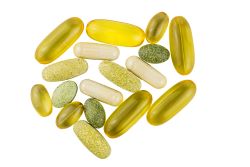
J. David Legan, PhD
Director of Science
David earned his Ph.D. in Food Technology from the University of Reading in the UK by modeling the ecology of mixed microbial populations, and then moved to Campden BRI in a variety of microbiological food safety research and client service roles. During that time, he was project lead for the Bacillus component of the UK’s pathogen modeling program. He moved again to Nabisco Research in New Jersey where he ran the corporate microbiology lab and developed a program of preservation technology development and microbial modeling. After the Kraft Foods acquisition, he moved to Chicago to work on Food Safety and Preservation research, and through modeling and validation studies:
- Optimized Oscar Mayer’s use of lactate and diacetate and their naturally cultured alternatives as Listeria-control agents in Ready to Eat meats
- Specified process conditions central to Oscar Mayer’s commercial launch of High Pressure Pasteurization of naturally cured RTE meats
David had responsibility for the Kraft cultures R&D group, developed a partnership to explore microwave sterilization leading to several patents, and led a program that developed an internal proprietary natural antimicrobial commercialized in several Kraft products. Technologies from his group supported approximately $4 billion in annual sales.
After years as a microbiology "client", he is now back in the "provider" role as Director of Science at Eurofins Microbiology Laboratories, Inc., by way of the Covance Food Solutions group based in Madison, WI, which he joined in 2016. In this role, he ensures appropriate method validation, explores new testing technologies, and fields multiple complicated food microbiology questions.
Products that his team has evaluated or developed and launched include:
- The 3M MDS platform in the Madison microbiology laboratory
- Flow cytometry for enumeration of probiotics
- Strain-level confirmation of probiotic identification using the polymerase chain reaction (PCR)
- Next-generation sequencing using the Oxford Nanopore Technologies GridION sequencing platform for microbial identification and microbiome analysis
Below are resources from David:
Chlorates and perchlorates are chlorine-based oxyanions that have emerged as contaminants of concern in the food and dietary supplement industries. These compounds are highly soluble in water and persistent in the environment, making them difficult to eliminate once introduced into the supply chain. Continue reading to learn what you can do to test for these contaminants.
Low water activity foods (LWAFs) have historically been considered low-risk for microbiological hazards because their limited “free” (unbound) water in the formulation prevents bacterial growth. However, foodborne illness outbreaks revealed that pathogens can survive for extended periods in LWAFs, even in the absence of growth. Watch now to learn what is required to validate control measures to reduce microbial risks in LWAFs. Originally Aired on June 18, 2025.
In this video, Business Unit Manager, Mallory Bolander, discusses what trends Eurofins Food Chemistry Testing Madison, Inc. is seeing across the food and dietary supplement industries and how they adapt to changing client needs.
Are you finding inconsistencies with your protein and amino acids testing across suppliers? By collaborating with the Eurofins Food Chemistry Testing Madison, Inc protein experts you can gain greater control over your supply chain and restore confidence in your labeling claims. Continue reading to find out how we handle these situations.
From ancient remedies to modern lab techniques, the science of vitamins has come a long way. Vitamin analysis plays a key role in making sure we get the right nutrients, whether through supplements, food, or baby formula. Keep reading to find out how testing is becoming more precise and efficient.
An entrepreneurial brand wanted to develop a shelf-stable liquid formula that could deliver proven joint-supporting ingredients in a convenient, consumer-friendly format. They turned to The National Food Lab for help to bring their concept from ideation to execution with scientific rigor and market-readiness. Keep reading to find out how we handle these situations.
Whether you're formulating a botanical powder, validating a nutrient claim, or verifying supplier specifications, reporting on a dry matter basis ensures that decisions are grounded in reliable, standardized data. Click to read a simple explanation of dry matter basis reporting, when it matters, and why.
Fortifying foods and dietary supplements with vitamins, minerals, and bioactives has become a key strategy for innovation and value. Understanding and planning around the LOQ is vital to protecting both your product integrity and your brand credibility. Continue reading to learn how to proactively evaluate your nutrient levels against assay capabilities.
Our "Behind the Science" series looks at food testing from the perspective of the testers and industry experts who devote their careers to it. In this episode, Eurofins Chief Scientific Officer, Dr. Doug Marshall speaks with Dr. David Legan, Director of Science for Eurofins Microbiology, Inc. Originally recorded on May 30, 2025.
Botanical innovation is reshaping how companies approach sourcing, formulation, and delivery. Learn how forward-thinking brands are aligning strategy, ensuring scalability, and meeting rising consumer and regulatory demands.












